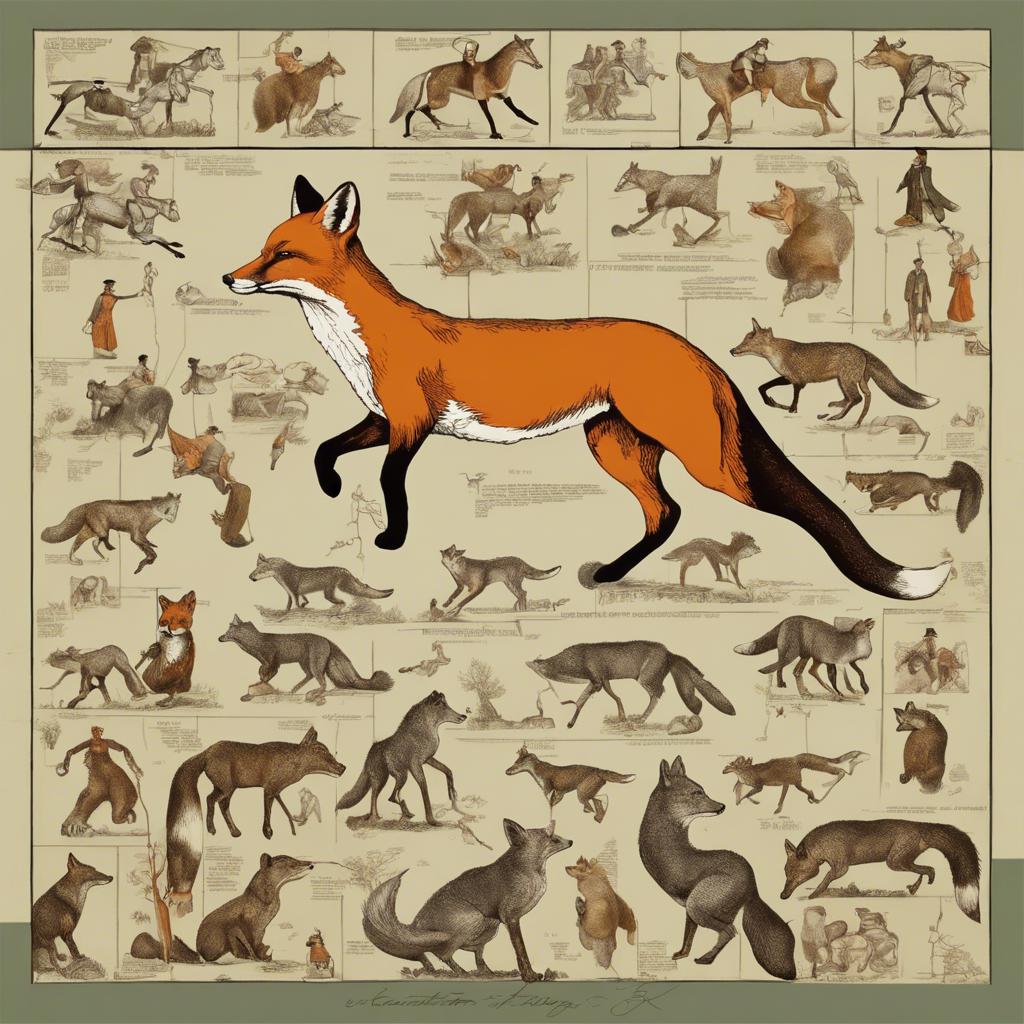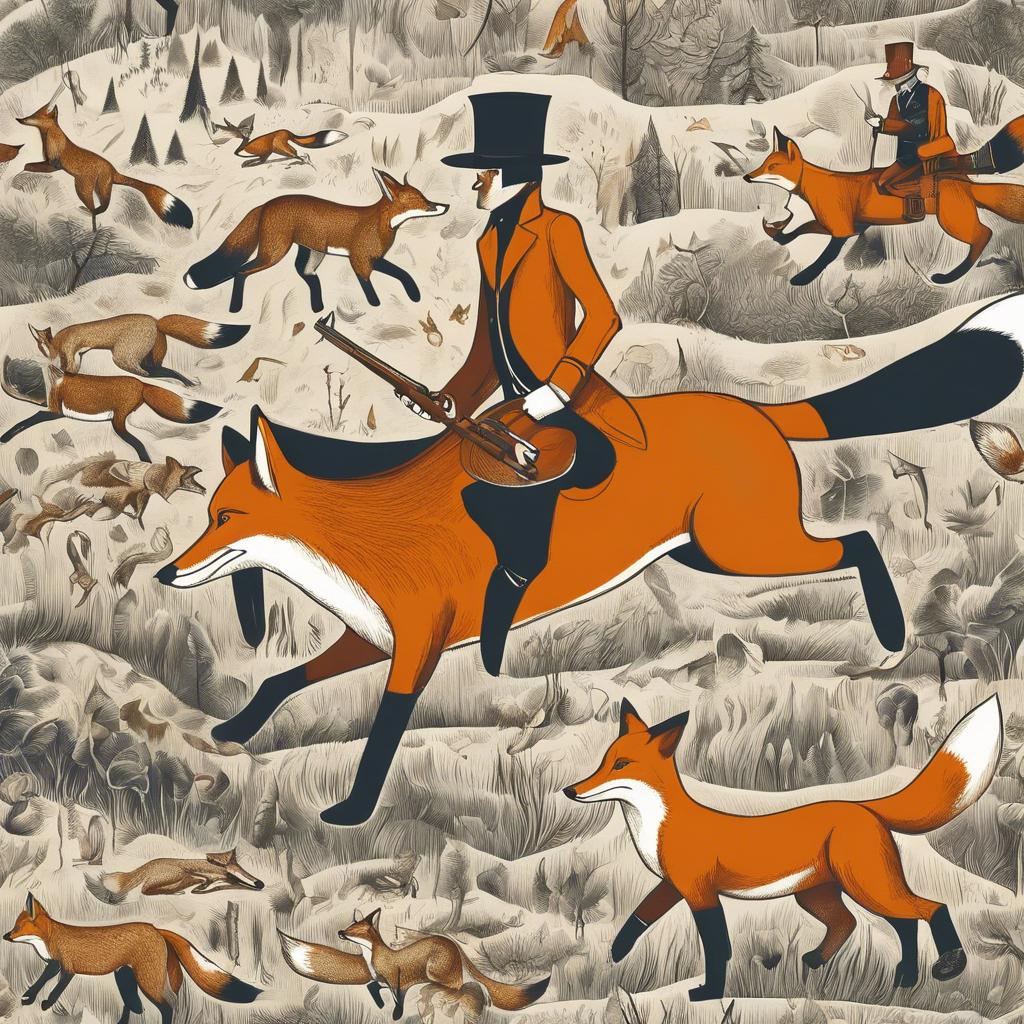Fox hunting has been a popular British pastime for centuries, steeped in tradition and rich with cultural significance. Dating back to the Middle Ages, this practice of chasing foxes on horseback with a pack of hounds has evolved into a complex and highly regulated sport enjoyed by the elite classes. Its history is deeply intertwined with the social fabric of Britain, reflecting the country’s aristocratic heritage and rural traditions. In this article, we will explore the origins and evolution of fox hunting, its impact on society, and the controversies surrounding this age-old pursuit.
Step Into the World of Cheryl Bolen
Dive into the enchanting stories of love, intrigue, and elegance set in the Regency Era. Cheryl Bolen's novels offer timeless romance and captivating tales that will leave you wanting more.
Explore Cheryl Bolen's Books Now
Evolution of Fox Hunting: From Ancient Traditions to Modern Practices
The practice of fox hunting can be traced back to ancient civilizations, where it was seen as a test of skill and bravery for hunters. In the early days, hunters relied on their own physical abilities and the speed of their horses to track down and capture the cunning fox. This tradition evolved over time, with the introduction of specialized hunting dogs and more sophisticated hunting techniques.
With the rise of the British aristocracy in the 18th century, fox hunting became a popular pastime among the upper classes. The sport was not only a way to demonstrate one’s social status and prowess as a hunter, but it also provided an opportunity for camaraderie and socializing among the elite. Hunts were often accompanied by grand feasts and elaborate gatherings, further cementing the tradition as a hallmark of high society.
In modern times, fox hunting has come under scrutiny for its perceived cruelty towards animals. As a result, many countries have implemented regulations to protect the welfare of foxes and other wildlife. Today, fox hunting is often done in a more controlled and humane manner, emphasizing the thrill of the chase rather than the actual capture of the fox. Despite its controversial past, fox hunting continues to be a beloved tradition for many enthusiasts who appreciate the history and excitement of this age-old sport.
Impacts of Fox Hunting on Wildlife Conservation Efforts
fox hunting has a long history dating back to the medieval times in Europe. The practice involves the use of trained foxhounds to track and chase foxes for sport. While the tradition has cultural significance in some societies, it has also raised concerns about its impact on wildlife conservation efforts.
One of the main impacts of fox hunting on wildlife conservation is the disruption of natural ecosystems. Foxes play a crucial role in maintaining the balance of local ecosystems by controlling the population of small mammals and insects. When foxes are hunted excessively, it can lead to an imbalance in the ecosystem, causing a ripple effect on other species that rely on them for survival.
Additionally, fox hunting can also have negative implications for endangered species. The indiscriminate nature of hunting can result in the unintended killing of protected species that share the same habitats as foxes. This poses a serious threat to the conservation efforts aimed at preserving vulnerable wildlife populations.
Ethical Considerations and Recommendations for Responsible Fox Hunting Practices
It is crucial to address the ethical considerations surrounding fox hunting to ensure responsible and respectful practices. To uphold ethical standards, it is recommended that hunters prioritize the well-being of the fox and the preservation of the natural ecosystem. It is essential to approach fox hunting with sensitivity and awareness of the impact it may have on wildlife and the environment.
One key recommendation for responsible fox hunting practices is to adhere to ethical guidelines and regulations set forth by governing bodies. This includes obtaining proper permits, following hunting seasons, and using humane and ethical hunting methods. Hunters should also prioritize the safety and welfare of not only the fox but also other wildlife and domestic animals that may be affected by the hunt.
Furthermore, it is essential for hunters to engage in conservation efforts to protect and preserve fox populations and their habitats. This can be achieved through supporting habitat restoration projects, participating in wildlife conservation initiatives, and advocating for sustainable hunting practices. By integrating ethical considerations and recommendations into fox hunting practices, hunters can contribute to the conservation of foxes and the overall balance of the ecosystem.
In Summary
fox hunting has a rich history rooted in tradition and aristocratic culture. While its practice has evolved and faced criticism over the years, it remains a significant aspect of rural life and a symbol of sporting prowess. As we continue to reflect on the ethical implications and environmental impact of this centuries-old pastime, it is essential to acknowledge its enduring legacy and contributions to our understanding of nature and the countryside. Let us continue to study and preserve the legacy of fox hunting, ensuring that its traditions are upheld and respected for generations to come.


